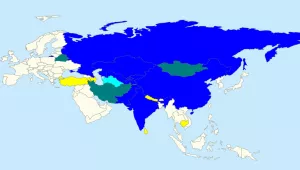
In 2004, the United Nations Security Council adopted resolution 1540, which acknowledged the non-state acquisition of weapons of mass destruction as a security threat and called on member states to implement “appropriate effective” domestic trade controls. The United States, however, has both promoted the multilateral implementation of strategic trade controls but has also increasingly resorted to extraterritorial enforcement of its counterproliferation rules. How can a multilateral, norms-based international regime like 1540 contend with extraterritorial enforcement based on national interests? We argue that increased U.S. extraterritorial counterproliferation policies are a consequence of the inconsistent implementation of resolution 1540, adaptive and resilient proliferation networks, and a history of expanding legal interpretations of jurisdiction. We find that while U.S. extraterritorial enforcement can effectively disrupt networks hiding in overseas jurisdictions, doing so creates disincentives for states to implement 1540 obligations and undermines broader nonproliferation objectives.
Arnold, Aaron and Daniel Salisbury. “Going it Alone: The Causes and Consequences of U.S. Extraterritorial Counterproliferation Enforcement.” Contemporary Security Policy, March 25, 2019
The full text of this publication is available via Contemporary Security Policy.






